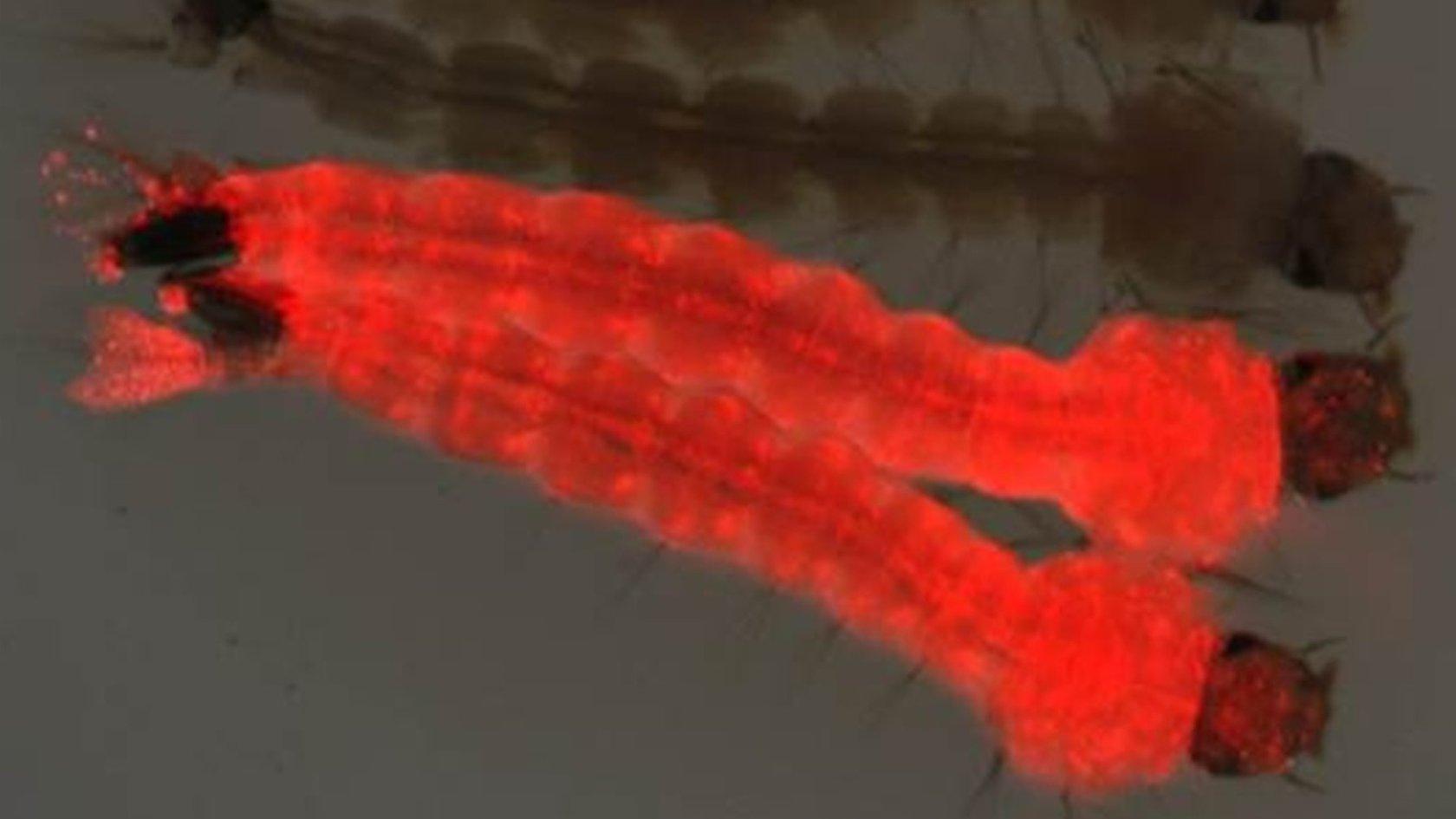France acts against olive disease outbreak in Corsica
- Published
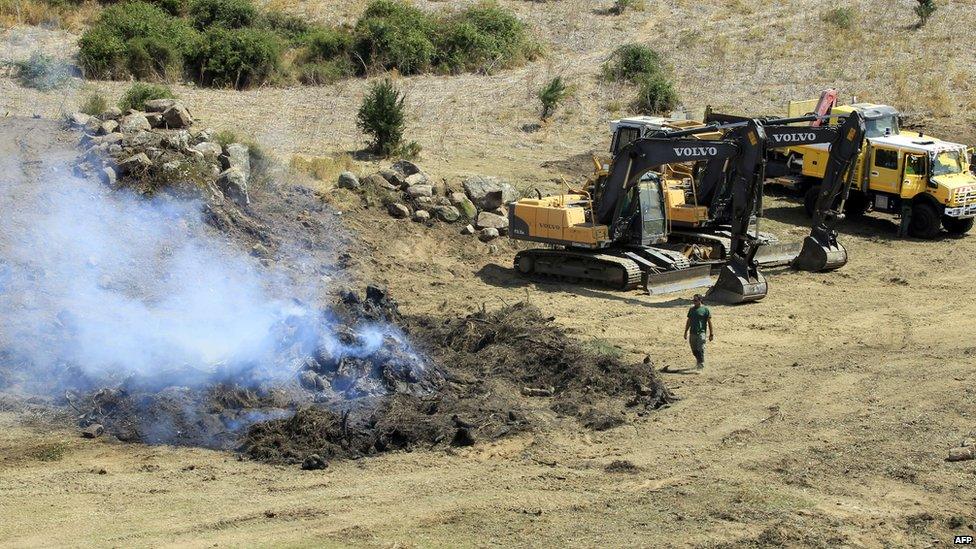
Corsican authorities are burning plants around the infected area
A bacterial infection ravaging olive trees in the far south of Italy has spread to Corsica, where emergency measures are being implemented.
Xylella fastidiosa, spread by insects, was found at Propriano in southern Corsica. The bacterium can also attack citrus trees and vineyards.
France has destroyed plants around the infected bush found in Propriano.
Xylella is one of the biggest disease threats to plants worldwide, the European Commission says.
There is no effective treatment for infected plants and new Commission regulations say, external the only solution is to destroy them and establish Xylella-free buffer zones around them.
Corsica - a Mediterranean island near Italy - has a small olive oil industry, with about 500 employees and more than 2,000ha (4,940 acres) of trees.
But the bacterium is a threat to about 300 plant species. It was first detected on the island last week.
On Wednesday France's Agriculture Minister Stephane Le Foll visited Propriano and pledged "a total commitment" to isolating the outbreak.
French authorities suspect that the bacterium arrived via a ferry from the nearby Italian island of Sardinia.
French health inspectors are checking ferry passengers arriving at the small Corsican port of Bonifacio, in an effort to prevent any further Xylella contamination.
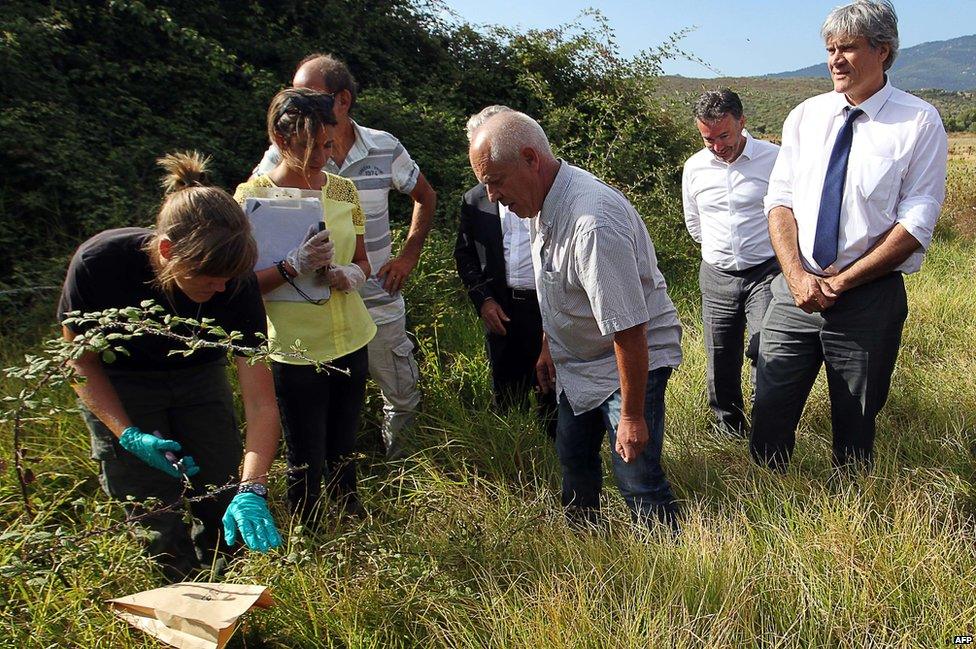
The agriculture minister (right) met plant health experts at the infection site in Corsica
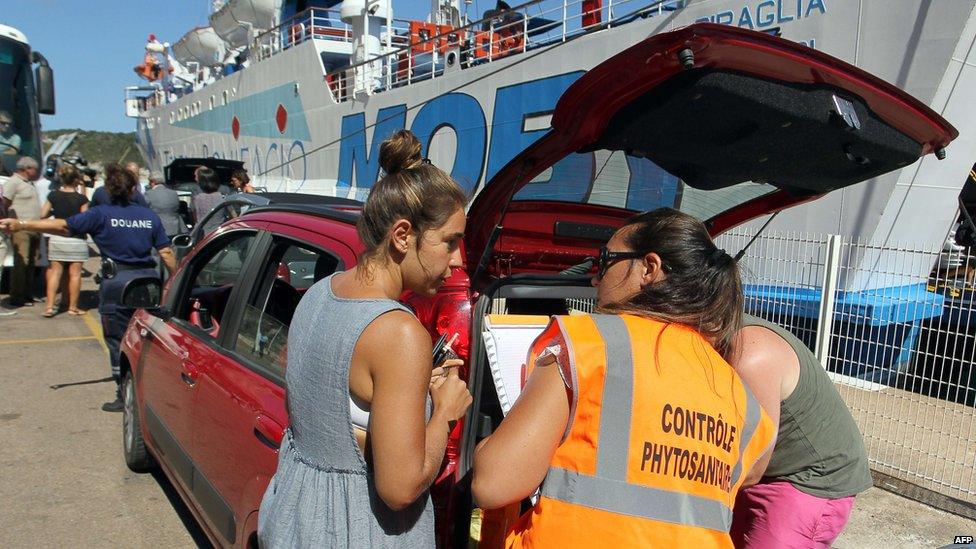
Ferry passengers arriving from Sardinia are being checked by French health officials
Infected coffee plants
Xylella has previously ravaged vineyards in California and citrus groves in Brazil. The disease kills plants by dehydration, as it blocks the delivery of sap in the xylem tissue.
The EU Commission says, external the bacterium found in Italy is believed to be a new genetic variant, "for which the range of host plants is still unclear". It is being spread by the meadow froghopper bug, which feeds on the sap of olive trees.
In Puglia, southern Italy, thousands of hectares of olives are blighted by Xylella. It is being treated as a natural disaster, as Italy is the EU's second biggest olive oil producer after Spain.
The EU tightened measures to contain the Xylella threat in May. They include a ban on all imports of coffee plants from Costa Rica or Honduras, though coffee seeds can still be imported.
The updated EU rules say Xylella has been detected in numerous coffee plants imported from the two Central American states.
The EU ordered Italy to demarcate the whole of Lecce province as an infected zone and create a 10km (six-mile) buffer zone around it. Lecce is the southernmost province in the Puglia region.
- Published24 March 2015
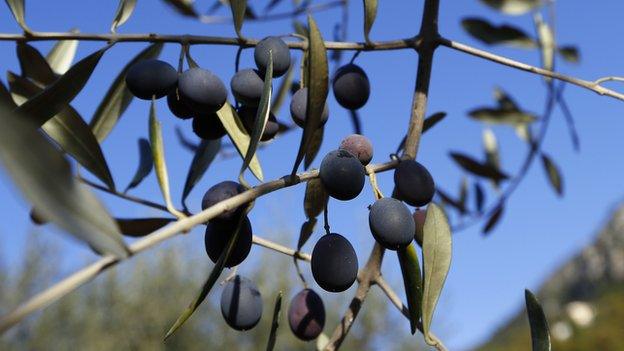
- Published9 January 2015
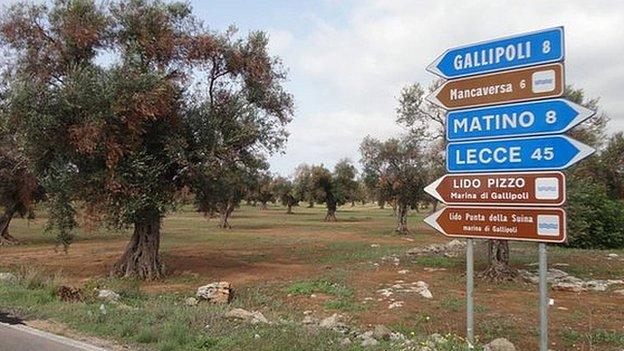
- Published20 November 2013
